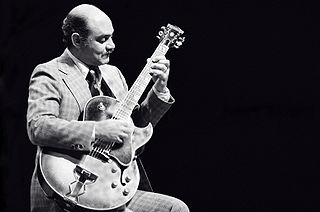A Quote by John Petrucci
Before Dream Theater took off I used to teach a lot, and one of the things my students often asked me was how to apply the chromatic scale to practical playing situations. You see, their other teachers would give them chromatic warm-up exercises without providing any explanation of how important and versatile this scale actually is.
Related Quotes
My father would say, 'Play a scale,' and I'd play one and he'd say, 'What about the rest? There must be one above,' so we'd figure them out. I'd start the scale on the root of the chord and I'd go as far as my hand would reach without going out of position, say, five frets, and then I'd go all the way back. So when ! practised I'd start right away on scales. As well as the usual ones, I'd play whole tone scales, diminished, dominant sevenths, and chromatic scales. Every chord form, all the way up, and this took an hour.
It's a lot easier to figure out how to scale something that doesn't feel like it would scale than it is to figure out what is actually gonna work. You're much better off going after something that will work that doesn't scale, then trying to figure how to scale it up, than you are trying to figure it all out.
There are, however, composers whose music can only be heard in a chromatic sense. George Perle, for example, wrote pieces that you might think of as leaning in a tonal direction but it's very hard to register a pitch as, say, the sixth degree of a scale, whereas in much of my music I think that's often relatively easy to do.
Scale is a mental - you can say that a lounger has scale, a building has scale, or an object has scale, or a page, or whatever if it's just right. A scale is a relationship to the object and the space surrounding it. And that dialogue could be music, or it could be just noise. And that is why it is so important, the sense of scale.
I think one of the things that is important, for me, though a lot of people would disagree with me, is that you be founded in theater so that you understand what an audience is, what kind of an animal it is and how to play with it. How to have fun with it, how to sympathize with it, all the things that an audience is. I don't think you're going to find that out unless you do theater.
I found that whenever I encountered a situation, rather than just reacting to it, it was tremendously useful to think carefully about how I should react to it and other situations like it. Besides providing me with more thoughtful responses in each of these cases, approaching things this way provided me and others with guidance on how to deal with similar situations when they came up in the future.
There are only two answers for the handling of people from 2.0 down on the Tone Scale, neither one of which has anything to do with reasoning with them or listening to their justification of their acts. The first is to raise them on the Tone Scale by un-enturbulating some of their theta by any one of the three valid processes. The other is to dispose of them quietly and without sorrow.


































